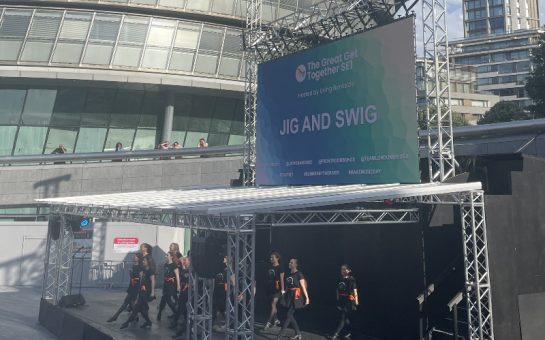Women and girls are still suffering from FGM-related health issues as more than 100 patients are reported to have visited the Chelsea and Westminster Hospital between January and October last year.
Figures obtained by SW Londoner via FOI reveal the West London African Women’s Service saw 125 cases during that time.
Female genital mutilation (FGM) is commonly performed in childhood, often in unhygienic conditions and without anaesthetic.
In the short term, it can cause severe pain, life-threatening bleeding and infection. In the long term, it can lead to gynaecological issues and problems relating to childbirth.
Adwoa Kwateng-Kluvitse, 60, head of global advocacy and partnerships at FORWARD (Foundation for Women’s Health Research and Development), has campaigned against FGM since the 1980s.
She said: “As an African woman, I don’t want to see it going on anywhere. It’s only since last August that the government have attempted to assess cases, so it’s difficult to say whether the numbers have gone up or down.
“We’ve been providing prevention and support work for 30 years. Thirty years ago, it wasn’t a topic many people wanted to talk about, but there are a significant number of young people taking action now. We started working with young people in 2005 and our last big event was a flash mob in Covent Garden.”
The figures for Chelsea and Westminster come as no surprise to Ms Kwateng-Kluvitse.
“There are more services in London, and it’s easier to be anonymous. Women travel from other parts of the country,” she said.
The women’s rights advocate also calls for more services both in London and elsewhere in the UK.
“It does not come under the umbrella of extremism or fundamentalism – it is violence against women and girls.”
“If you speak to any Well Woman clinic, they’re fully booked. Because most services are based in London, women from other urban areas are expected to travel. There needs to be more services. In Wales, there’s no specific service at all.”
FORWARD is urging men to speak out against FGM in their communities and is also seeking to raise awareness in primary schools.
Ms Kwateng-Kluvitse said: “Our Men Speak Out initiative encourages men to raise their voices against FGM too.
“A year ago we started strategic work in primary schools helping children to understand and respond.
“Obviously, they are not responsible for their own child protection – but they must be aware and be able to red flag if they need to.”
The women’s rights campaigner argued that change needs to come from the ground up, as well as being imposed from above.
She said: “Nothing will change until communities themselves realise that they need to abandon the practise. You can’t legislate a social norm out of existence.
“FGM is not a religious obligation. It is a cultural practise and a social norm. It pre-dates religion and is not required by Islam, Christianity or any traditional African religion.
“It does not come under the umbrella of extremism or fundamentalism – it is violence against women and girls.”
According to Chelsea and Westminster Hospital, girls and women from a variety of religious backgrounds are affected.
The hospital’s website states: “Our aim is to make the service accessible to as many women as possible, irrespective of where they live and what language they speak. We work closely with community outreach teams and have interpreters on hand.”
Although it is most widely practised in Africa, it also occurs in some Asian and Middle Eastern countries.
Picture courtesy of wonderland, with thanks




